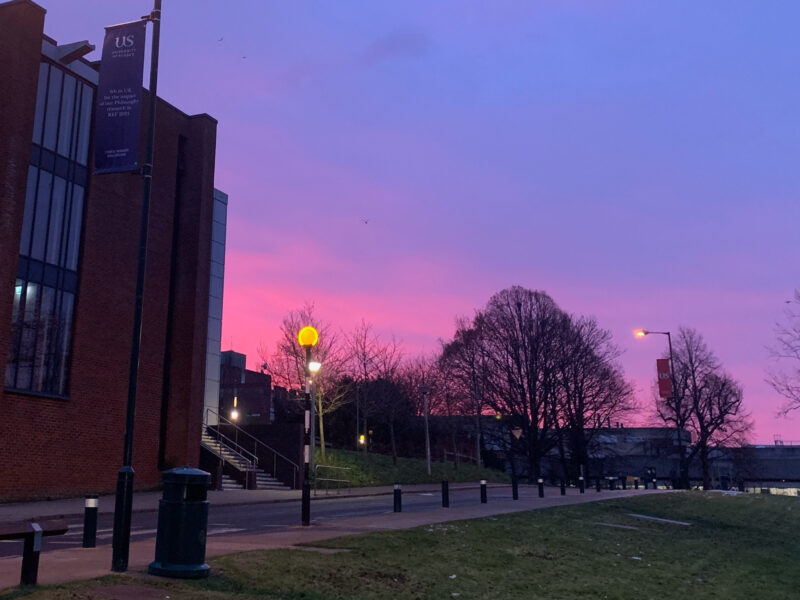I am a rabid, codependent, near clinically obsessed fan of NBC’s Community. I find myself spontaneously singing Troy and Abed in the morning, lamenting when someone “Britta”s things, and I’ve been known to compliment friends, by informing them, they’re streets ahead. This may be all well and good, but why, you must be wondering, am I divulging these odd, and at least slightly embarrassing personal details, to you, the reader? Wading into the opinion section, where you’re sure to find indulgent, neurotics, such as myself, it seems you’re asking the wrong question. Rather, what’s most curious is why I haven’t tried to impress this topic on you much earlier? We attend a small, satellite campus, after all, fitting the show’s backdrop perfectly. With Greendale’s reputation of questionable academic qualifications, kooky campus politics, and a real lack of legitimate extra curricula’s, the snarky, satirical analysis practically writes itself. A simple refutation however has stood in the way; it’s a comparison that’s always felt too cheap, a lazy foil to haphazardly paint Laurier Brantford with. Undoubtedly, you’ve already measured the similarities, disregarded the hyperbole, and moved on. For this, my apologies, yet I must contest, it has better to offer. When creator Dan Harmon began the show, it was never intended as a highbrow snub at non-ivy leaguers, but was always centrally about its own namesake, a sense of community.
This may seem far-fetched, since sarcastic, disgraced lawyer Jeff Winger, is for all intents and purposes, the main character. Sure, on the surface he delivers edgy plot driving repertoire, and fills out the third act with monologue, but deep down, his stiff inability to open up, is shown as unattractive emotional baggage rather than a mysterious, sexy, je ne sais quoi, as it normally is on television. Unlike the Harvey Specters, Patrick Jane’s, and even, Walter White’s of our entertainment universe, Jeff’s dark, and devilish banter, leaves you with the sinking feeling, at his most smug, he’s more style than substance.
What’s even worse than this realization however, is finding that as young people, we’re programmed initially to relate to him. Greendale really is for rejects, we say, wrapped in a cloak of pompous denial, each episode tugging apart the stitches a bit more, until we’re utterly naked. Much like Jeff’s personal trajectory, we’re meant to walk into the room feeling superior, and leave reevaluating what a jaded, flippant attitude really gets you. In fact, it’s the characters that aren’t afraid to look stupid, or vulnerable, or ridiculous, who have the most fun, and lead the most fulfilling lives. Troy and Abed’s peculiar, brotherly friendship, which included building a campus wide blanket fort, a dreamatorium for role-play, and a super sweet handshake, are mocked by Jeff openly, but secretly envied. In the alternate timeline episode, the only point where everyone comes together and enjoys themselves, is when Jeff steps out of the picture. Letting go of his big, useless apartment, law friends who constantly compete, and solemn indifference to others, however slowly and markedly improves Jeff’s quality of life, which is apparent to viewers. In fact, it’s only when Winger gives in, and begins to connect with the people around him, and more specifically Greendale, that he finally realizes what’s been missing.
This, in a nutshell, is really what’s so fascinating about Community. Economic, social, even emotional losers aren’t normally treated nicely on TV, where winning and suave posturing is deemed of ultimate import. Who gets the girl, who lands the big job, who’s the most popular? These are all questions that become non-sequiturs in the Greendale universe. Legitimate friendships and real connections, things taken for granted, or thought fundamentally silly, become the fodder for a truly moving search for ones place in the world, amongst other people just as diverse and broken as yourself; an incredibly familiar sentiment. Instead of acting as a hobbled 20 minute comedy, slapped together solely for laughs, this is Harmon’s magnum opus, asking us the question he’s admittedly toyed with all his life, how does one simply stop living life for the imagined audience in your head, and just open up?
In today’s world, where these provocative questions aren’t asked often, or early enough, it becomes quite obvious why attending Laurier Brantford can feel like a heavy cross to bear. Doing things the right way according to society, is stressed, and choosing an intimate, community feel, over a big campus circus, just isn’t encouraged. Unfortunately, the right way seems to be filled with hollow, superficial indicators. Apathy, cruel sarcasm and a pervasive narcissism have a strange hold on our generation, in ways we don’t care to acknowledge. So, when someone acknowledges Laurier Brantford as a warm or positive place, many have a hard time wrapping their minds around the idea. A valuation of the intangible -kindness, generosity, community- is almost always skipped right over, and truly there in lies the greatest tragedy.
This, in particular, is why I’ve found it impossible to depersonalize this subject, to approach it from a third party perspective. I, like so many, walked onto this campus, much the same as Jeff did, with a severely dubious disposition and a chip on my shoulder. I don’t say this with any kind of pride. So, while society tells young people that successful lives are destined to play out one way, in big dorms, with important degrees, and flashy friends, it can become disorienting for the lot of us who don’t see this happen, making us cold towards the simpler pleasures that are all around, until someone or something has the good sense to remind us. Our friends, our values, and our ability to enjoy life, are things that comprise, arguably, the most important pieces of ourselves, and play a staring role on small campuses like Laurier. Community, instead of poking fun at the patsies who attend tiny Greendale, allows you to fall in love with the people, and the environment they’re in. The writers, Instead of taking the easy road, by playing on our collective penchant for smug indifference, incorporate a kindness and simple beauty that runs throughout. It’s taken me a very long time, but finally I can see that, both within the show, and here at Laurier Brantford.



